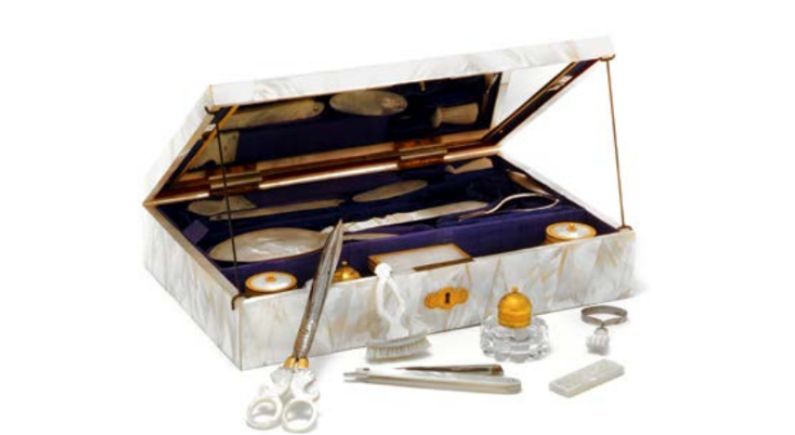
Packaging in the 19th century
What can we learn from the past? A look at beauty packaging’s 300-year story and evolution. Understanding why we are where we are now and what we can learn from reinventing old methods.
Sign-up to a "free" member account to access this content!
What can we learn from the past?
A look at beauty packaging’s 300-year story and evolution. Understanding why we are where we are now and what we can learn from reinventing old methods.
- Ancient Times - part 1 - HERE
- 18th Century - part 2 - HERE
- 19th Century - part 3 - HERE BELOW
- 20th Century - part 4 - HERE
This brief historical overview of the evolution of beauty packaging has been created in collaboration with the Musée International de la Parfumerie (MIP) and Collector, Anne the Thoisy-Dallem.
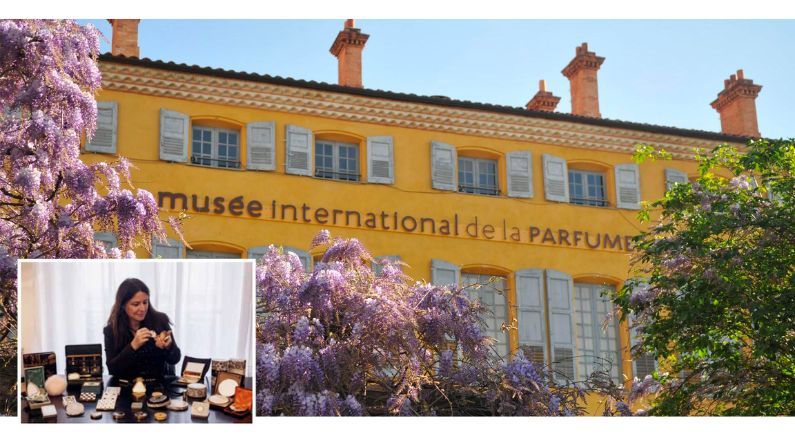
If you want to learn more about beauty, perfumery you could always plan a visit in the South of France.
Here is our selection of historic beauty items, to help you get inspiration for your next product development.
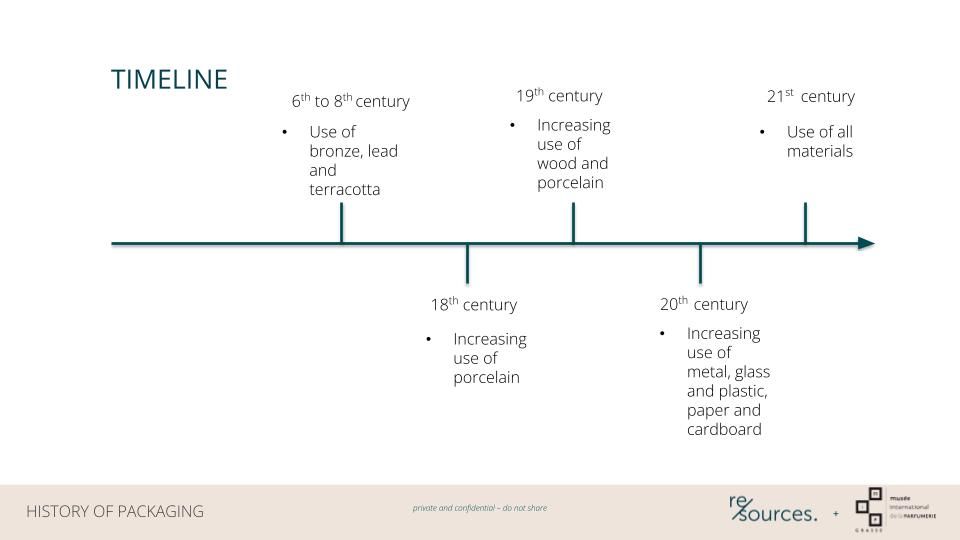
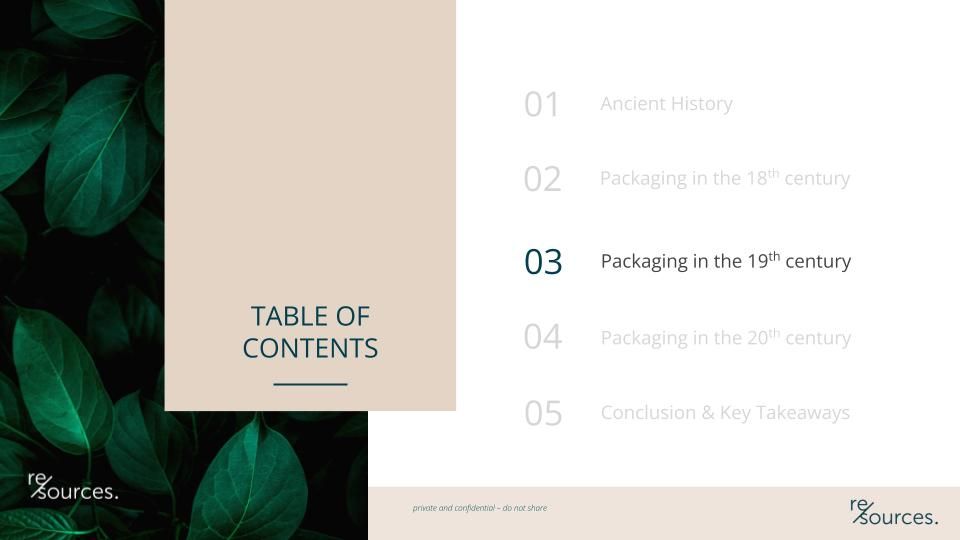
video recording of the following report
MEN TRAVEL CASE
A smooth face, a sparkling complexion, soft, white hands, a mouth with delicately smelling breath, a carefully powdered wig: these were the most important criteria of bodily elegance the authors of treatises on perfumery insisted on.
To achieve this, a whole panoply of products was available.
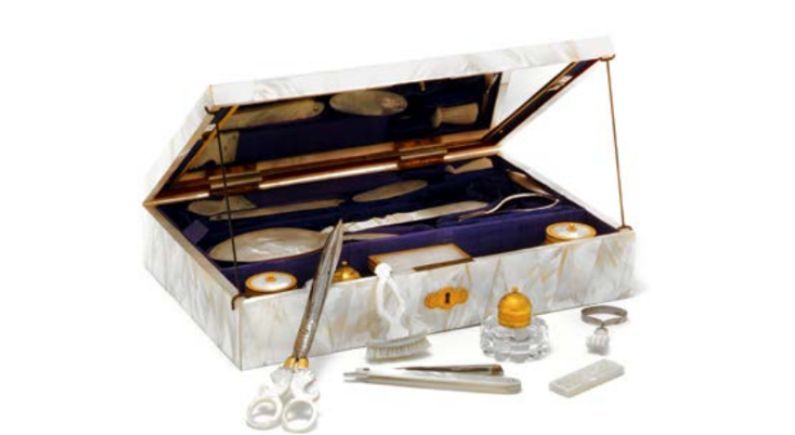
This men's travel case is made from mother of pearl, bronze, glass, metal and fabric, and show how sophisticated the early 19th century was in high society.
Why it's interesting
This object is multi-tasking, transportable, and made with noble materials and finishes. As we are moving back into multi-purpose beauty objects we can see that this was already a practice in the early 1800. This type of accessory was also a demonstration of social status and shows how a beauty accessory can make one stand out from others. Nowadays this could be used as a way of showing care for the planet (long-lasting, multipurpose) as well as care for one’s well-being.
MAKE-UP KIT
This make-up kit is composed of a leather case containing a porcelain jar and a make-up brush.
In the 18 / 19th century, the use of make-up contributed to the aristocratic exuberance characteristic of the time regarding the games of seduction of this highly formal society.
Red coloured make-up stood out against powdered-white faces, whether on the cheeks, the lips, or the lower eyelids.
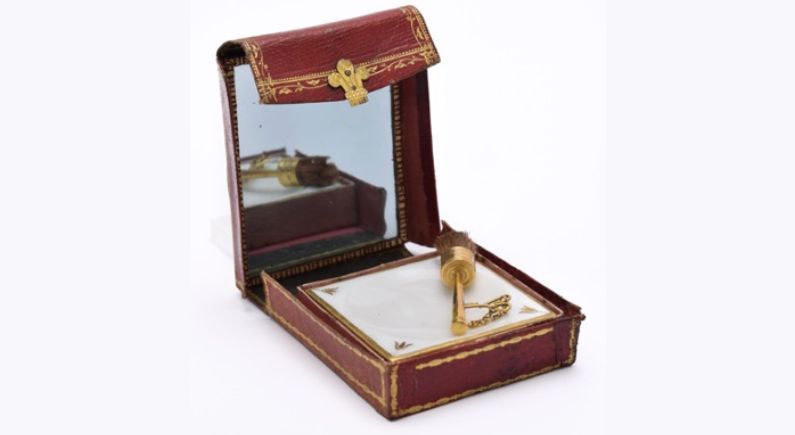
To be able to refresh their make-up at any time, fashionable women carried small, precious cases with their indispensable make-up, brushes, patches and mirror.

